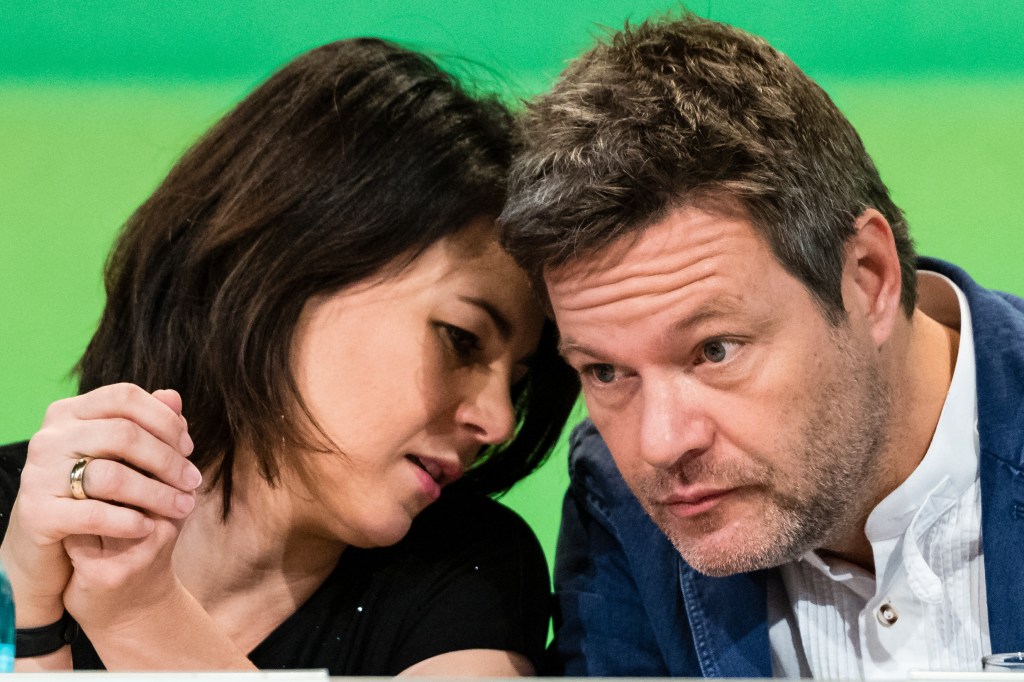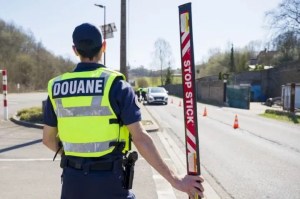Cracks are beginning to appear in the shiny veneer of the German Greens’ professionalism, a feature that was supposed to mark out the insurgent centrist party and contrast them against the spluttering grayness of the outgoing Merkel regime.
If indeed the Greens are to win a quarter of votes in September’s German elections— as their most favorable polls suggest — that would mean a tripling of their vote share compared to 2017. Given the jump in the scale of the party’s ambition, one may be forgiven for expecting a corresponding increase in competence. But so far, the Greens’ campaign has been amateurish, to say the least.
The unpopular heir to Angela Merkel, Armin Laschet, was expected to steer the Christian Democrats down to second place — or even into opposition — for the first time since 2005. But the ascendant Greens have now stumbled. Perhaps because expectations of the relatively youthful Green leadership were higher. Nobody looks to a conservative career politician like Laschet for ideological purity and upstanding morality. Sell yourself as a young idealist, however, and people will expect you to act the part.
The party’s candidate for chancellor, Annalena Baerbock initially seemed to fit the bill. The 40-year-old mother of two came across as both relatable and professional. But she has recently lost credibility over questions of personal accounting. Baerbock has had to adjust her income declarations by €25,000, made up largely of COVID and Christmas bonuses granted to herself out of the party coffers
Having supposedly forgotten to declare a figure that could buy a family car, Baerbock called this a ‘stupid oversight’. While this may seem like small fry compared to some of the financial scandals involving conservative politicians, it is not a good look for someone who tries to sell herself and her party as uncorrupted and principled.
Her academic credentials too have come under attack. Baerbock’s enemies focused on the fact that she had not obtained a bachelor’s degree, before embarking on a masters at the London School of Economics. Her team, meanwhile, argues that she held a comparable qualification from the University of Hamburg. Nonetheless, the debate drew attention to her academic suitability for the highest political office in the land at the same time as she made a series of vague and sometimes even incorrect statements, some involving basic questions of German political history. In a speech, she claimed that the Social Democrats established Germany’s social market economy, a system that the conservatives had introduced in 1949 and run for two decades before the first SPD chancellor was elected.
The Greens have also recently suffered unfortunate headlines with their Tübingen mayor, Boris Palmer, who had posted, in his words, an ‘ironic’ joke about a black footballer on Facebook. While Palmer is unrepentant, voices from within the party calling for his expulsion are getting louder. Whatever the rights and wrongs, a public debate around racist jokes is not the stuff of election-winning headlines.
One of the biggest challenges for the Greens has always been unity. Initially it looked as if the leadership duo had cracked it. Baerbock and party leader Robert Habeck practically finished each other’s sentences in their shared TV appearances. However, these days, they are more often found in different locations, contradicting each other and following their own agenda. Habeck recently blurted out in an interview that he thinks Ukraine should be sent German weapons for self-defense — Baerbock directly contradicted him shortly afterward.
The Greens are really missing a trick. Their rivals in the Christian Democrats and SPD have elected hugely unpopular candidates for the chancellorship. They have also run the country for a long time and there is appetite for change. Successful members of the Green party, such as the newly re-elected Winfried Kretschmann, the minister president of Baden-Württemberg, have shown that it is possible to draw voters away from the old parties. What it takes is a good deal of pragmatism, the willingness to compromise and a firm, clear message on the issues that matter to people.
This article was originally published on The Spectator’s UK website


















